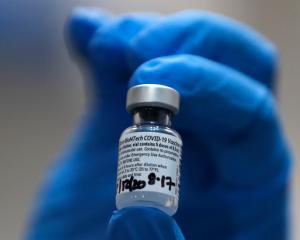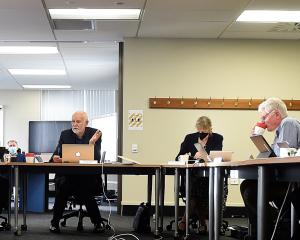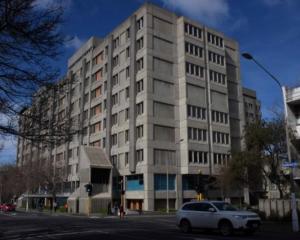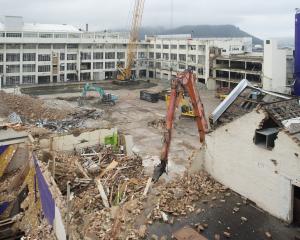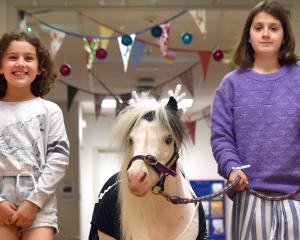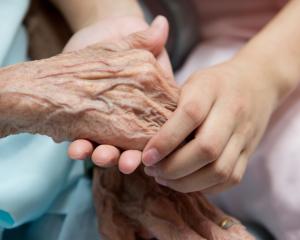It is all very well for a former audiologist to say he has ''moved on'' when Otago families are still living ''every day'' with the effects of late diagnoses of their children's conditions, the Dunedin mother of one of his former patients says.
Nicky Reedy, the treasurer of the Otago Association for Deaf Children and mother of two profoundly deaf children, said she was glad Simon Tregonning had finally been publicly named, but families were still traumatised and angry no-one had been held accountable for the effects of his failures.
Mr Tregonning was named in a recent Human Rights Review Tribunal report as the Otago District Health Board audiologist who failed to diagnose a boy's profound hearing loss, despite seeing the boy five times over 11 years amid the continuing concerns of parents, teachers and other health professionals.
In 2011, when another audiologist diagnosed the child's hearing loss at age 12, the boy already had major speech, language and literacy problems and his social and academic progress was severely disrupted.
The Human Rights Review Tribunal brought proceedings against Mr Tregonning and the Southern District Health Board following a 2013 report from the Health and Disability Commissioner, which found the then unnamed audiologist did not provide testing and diagnostic services with reasonable care and skill to the boy, as well as to a 6-year-old girl.
The report pointed to a lack of cross-checks and follow-up appointments, but acknowledged the audiologist was working with sub-optimal equipment and facilities, little collegial support and inadequate supervision and said the health board was therefore liable for the breaches.
The Human Rights Review Tribunal brought its proceedings under the Code of Health and Disability Services Consumers' Rights. Its report said both Mr Tregonning and the health board admitted patients' rights were breached.
It said they failed to provide services with a reasonable care and skill that complied with legal, professional and ethical standards.
Ms Reedy said some families were still angry about the service they had received.
''For us it's been a hard road ... you move on to a certain degree, but it's pretty damn hard. We live with this every day. I don't think about him anymore. If he's moved on, lucky him.''
She was upset with the health board too, but said the new audiology service was much improved.
Mr Tregonning's position was disestablished in a 2010 restructuring and the health board wrote to the parents of 1532 children tested by Mr Tregonning between 2007 and 2010. Of 123 children retested, one was found to have significant hearing loss and five needed more tests for specific diagnosis.
The boy's family made a claim with ACC, but it was declined because there was no physical injury.
Mr Tregonning, who is now a high school maths teacher, refused to comment last night when contacted, but had earlier told Fairfax old equipment and a lack of supervision was to blame for the failure in diagnoses. He said he had apologised to the boy and his family in letters and regretted what happened.
''But I can't do anything about it. I've moved on, I've got a different career. To me it's the end of story.''
He said the main problem was lack of supervision and access to his peers, because he was not a member of the New Zealand Audiological Society and worked on his own for many years.
The tribunal found he could not become a full member of the society because he could not find the formal supervision required, but that the health board still made him sole charge audiologist at Dunedin Hospital.
The board did not review his performance in 2005, 2008 or 2009.
A peer review of his performance in 2010 found it was not safe for him to perform some of his duties, partly because of the rooms and equipment available to him, but also because he believed his long experience meant he could tell whether there was a response from a child without other evidence.
Since 2010, the health board has made significant changes to the service and a review last year found the staff were suitably qualified, the facilities substantially upgraded and the service ''comparable to or higher than many DHB clinics in New Zealand''.

